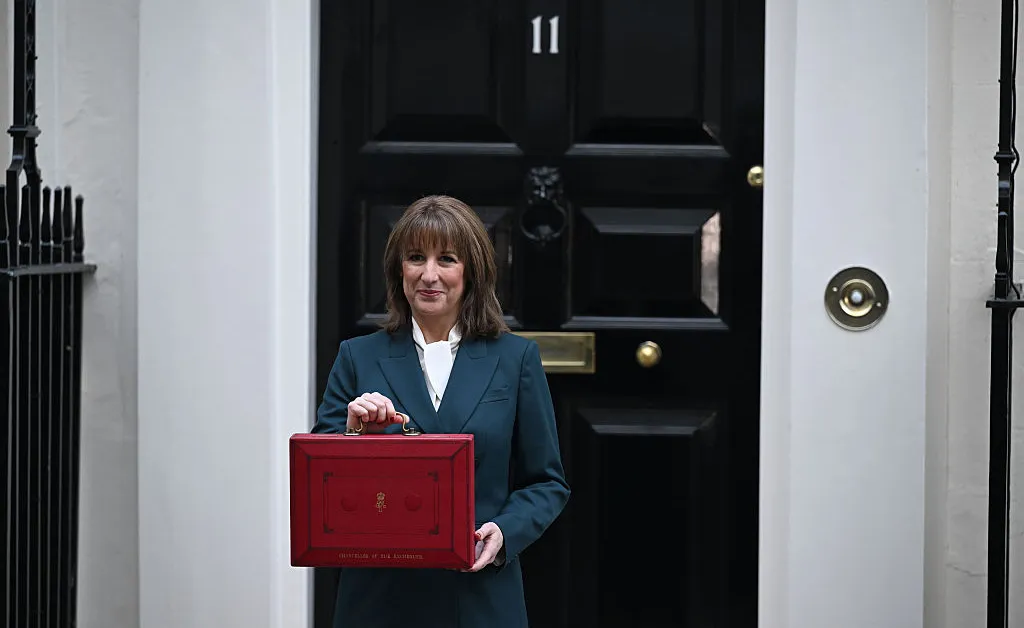Weeks of chaos came to a head today in Britain. The government of Prime Minister Keir Starmer unveiled its Autumn Budget after it floated, then abandoned, an election manifesto-busting income tax rise to plug a £30 billion fiscal black hole. The controversy has not helped the least popular Prime Minister on record, prompting talk of a leadership challenge as the far-right Reform tops the polls and the upstart Greens draw even with Labour.
[time-brightcove not-tgx=”true”]
Now that the document which was supposed to reset Britain’s direction has finally been published, it looks less like a long-term plan and more like an attempt to contain this mounting crisis.
Misgivings about the Budget flowed partly from the fortunes of its author, the Chancellor Rachel Reeves. Her fast-and-loose approach to public office—with allegations that she plagiarized her memoir, embellished her resume, filed inappropriate expenses, accepted lavish gifts, and breached housing rules when renting out her second home—has not inspired much confidence in her blueprint. Nor has her broader attitude to the country’s finances, which has so far been defined by the contradictory aims of imposing cuts and boosting growth in an economy where Brits now earn half that of Americans.
Reeves’s inability to reconcile these two imperatives has caused her to lurch between various half-formed policies over the past year. At one point she shed tears in the House of Commons after she announced harsh new austerity measures and was then forced by her own colleagues to backtrack on them. The row over income taxes is just the latest in this series of reversals.
This erratic mood has characterized the entire Starmer government, which came to power last July without a real vision of change. Its mission was never to remake Britain, no matter how sorely that was needed in the wake of the Great Recession, the upheaval of Brexit, COVID, and five Tory Prime Ministers in six years. It was rather to provide “stability” and good government after a long spell of political chaos.
Read More: The Man Who Wants to Fix Britain
These precepts have done nothing to remedy the U.K.’s most acute problems, like rising poverty or sapped industry or creaking public services. And so the government has spent much of its time responding to the ephemera of the news cycle rather than pursuing a clear agenda. The result has been a rapid deterioration in its credibility. Polls put Labour consistently below 20%, despite winning a huge parliamentary majority last year.
Its most serious threat comes from the right, with Nigel Farage’s Reform now supported by a third of the country, meaning it would win a clear majority were an election held tomorrow. Reform’s platform is threadbare, marked by a single-minded obsession with immigration as the root of seemingly every social ill and offering mass deportations as the solution. Yet Starmer’s own outsized focus on the issue has helped to legitimize this ugly tendency, as has Home Secretary Shabana Mahmood’s hardline new rules on asylum and immigration. The sterile conservatism of Labour has opened the door to the boisterous reaction of Reform.
On the left, the Greens’ new leader Zack Polanski has turned this humdrum party of middle-class gardeners into an eco-populist campaign machine—shifting its emphasis onto the cost-of-living crisis with a set of simple policies to lower bills, while refusing to accept the scapegoating of migrants. Some polls even put them in second place. At the next election, they could form a pact with the new socialist party being founded by the former Labour Party leader Jeremy Corbyn, which, though its launch has been marred by remarkable infighting, could still plausibly pick up several seats, further expanding the left bloc in Parliament.
These insurgent forces have hastened the demise of the U.K.’s two-party system, ushering in what could be a once-in-a-century political revolution. Labour’s only way to save itself is either to tack left, using public spending to materially improve people’s lives, or to develop a newly assertive centrism, promising an antidote to populists on either end of the spectrum. The Budget was a major opportunity to take one of these paths.
But Labour squandered it. While the initial plan to hike income tax was unpopular, it would have at least brought in more revenue which could have been used to help fulfil the government’s promises to invest in public services and boost growth. Starmer has staked his governing project on economic growth that would boost government receipts and obviate the need for higher taxes. When this growth failed to appear, Labour found itself in a corner. The upshot is a Budget of piecemeal measures that fall well short of a considered economic strategy.
In its final form, the Budget is merely an attempt to appease disparate interests: gesturing to the affordability crisis by removing certain electricity levies, placating the markets with scattergun tax rises, and courting the hard right with new funds to investigate nail bars and car washes where migrants are thought to illegally work. This is the behavior of a government that feels hemmed in on all sides—by price rises and spending limits, and by opponents who have capitalized on their fallout.
Starmer and Reeves cannot escape this labyrinth by offering minor concessions to various voters and investors. Finding the exit route requires a level of political imagination that both appear to lack.
The post Britain’s Labour Government Unveils a Messy Budget of Last Resort appeared first on TIME.




